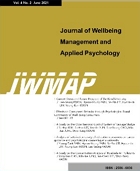- 권한신청
- E-ISSN2586-6036
- KCI
The Impact of Enhancing Employees' Innovation Behavior through Coaching Leadership on SMEs' ESG Performance
The Impact of Enhancing Employees' Innovation Behavior through Coaching Leadership on SMEs' ESG Performance

Bum-SukLEE (Kyung Hee University Graduate School of Business)

Young-HunKim (Kyung Hee University Graduate School of Business)

Abstract
The purpose of this study was to investigate the impact of coaching leadership on ESG management performance through employee innovation behavior in the context of SMEs. Amid the lack of ESG-related research on SMEs, this study is significant in that it empirically verified that coaching leadership can contribute to the improvement of ESG performance of SMEs by inducing innovative behavior of employees. For the study, a survey was conducted on 244 employees of domestic SMEs. As a result of the study, it was found that coaching leadership partially had a positive (+) effect on ESG performance. Specifically, direction suggestion and competency development had a positive effect on the environment, social responsibility, and governance structure of ESG performance, but the relationship with performance evaluation did not have a significant effect. In addition, the direction of coaching leadership and competency development had a positive effect on innovation behavior, but performance evaluation was not significant. Innovative behavior had a significant positive (+) effect on all aspects of ESG performance (environment, social responsibility, and governance), and showed a significant mediating effect in the relationship between coaching leadership and ESG performance. This suggests that innovative behavior plays an important role in mediating the relationship between the sub-factors of coaching leadership and ESG performance. The theoretical significance of this study is to support the innovation behavior of members through coaching leadership in the SME field and to identify a path to increase ESG performance as a result. In addition, most previous studies on the relationship between ESG and innovation behavior have shown that innovation behavior is promoted by the influence of ESG, but this study confirmed that innovation behavior of SME members is an important factor in improving ESG performance. These results provided practical and policy implications for promoting ESG performance by leading the use of coaching leadership and innovation behavior in the SME field.
- keywords
- Coaching Leadership, ESG Performance, Innovation behavior
- 다운로드 수
- 조회수
- 0KCI 피인용수
- 0WOS 피인용수















